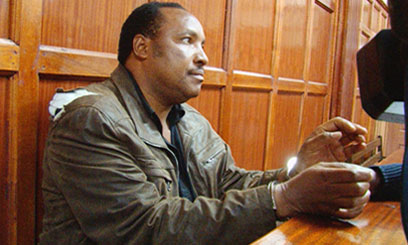By Heba Girgis
Impunity Watch Reporter, Africa
NAIROBI, Kenya—Early this morning, Sunday, September 30, 2012, a grenade attack on an Anglican church in Kenya’s capital city of Nairobi left a child dead and seven other children injured. This attack has been viewed as a response by the Somali militant group Al Shabab to the Kenyan troops’ capture Al Shabab’s stronghold a couple of days ago on Friday.

Currently, no suspects have been caught but suspicions have been placed on this group as there have been several other attacks on churches and public gathering spots in Kenya that have been attributed to Al Shabab.
Kenyan officials, however, noted that they do not believe that some of the smaller attacks are the work of Al Shabab. They commented that typically Al Shabab members have been trained in terrorist tactics and have often killed hundreds of people with large suicide bombs. But, the police also added that Al Shabab’s supporters in Kenya probably do not have the skills or the supplies to carry out a large scale operation and have now turned to less complicated attacks like the one today.
The Kenyan police chief Moses Nyakwama told the press that thirteen people were injured in this revenge attack and that two police officers were killed in the nearby town of Garissa—near the border of Somalia.
The reports of the attack suggest that many of those injured at the church were actually injured in the stampede after the attack. Police spokesman, Charles Owino, said, “These are the kicks of a dying horse since, of late, Kenyan police have arrested several suspects in connection with grenades.”
Irene Wambui, a woman who was at the church at the time of the grenades described the attack saying, “We were just worshipping God in church when suddenly we heard an explosion and people started running for their lives. We came to realize that the explosion had injured some kids who were taken to hospital and unfortunately one succumbed.”
The Kenyan military pushed deeper into Somalia and braced themselves for this kind of reprisal attack after the military staged an attack on Kismayu, the stronghold for Shabab militants, which allowed them to control a large area of the country. However, the Shabab have been slowly losing territory this past year against the Kenyan national army.
A member of the country’s Parliament appealed to the nation’s people when he said, after the attacks, “Religious wars have destroyed countries everywhere. That should not be replicated in Kenya.”
For further information, please see:
BBC News – Deadly Kenya Grenade Attacks Hits Children in Church – 30 September 2012
Christian Science Monitor – Child Killed in Kenya Church Attack: Revenge for Kismayo? – 30 September 2012
The New York Times – Blast Kills Boy at Church in Kenya – 30 September 2012
All Africa – Kenya: KDF Takes Kismayo – 29 September 2012


